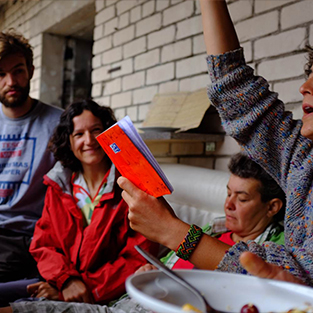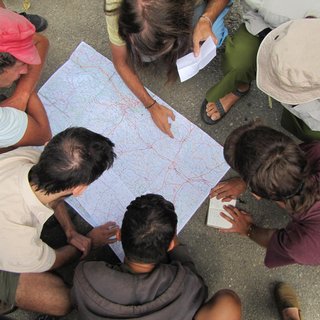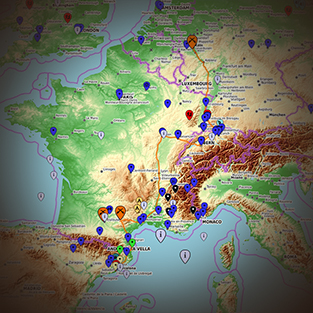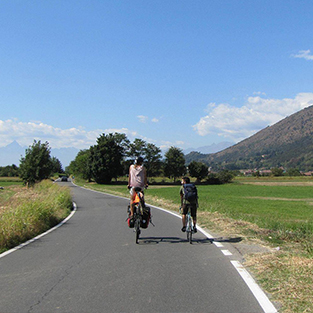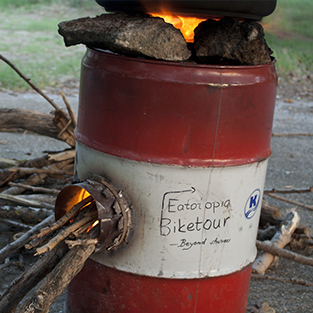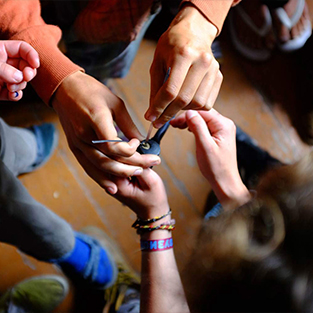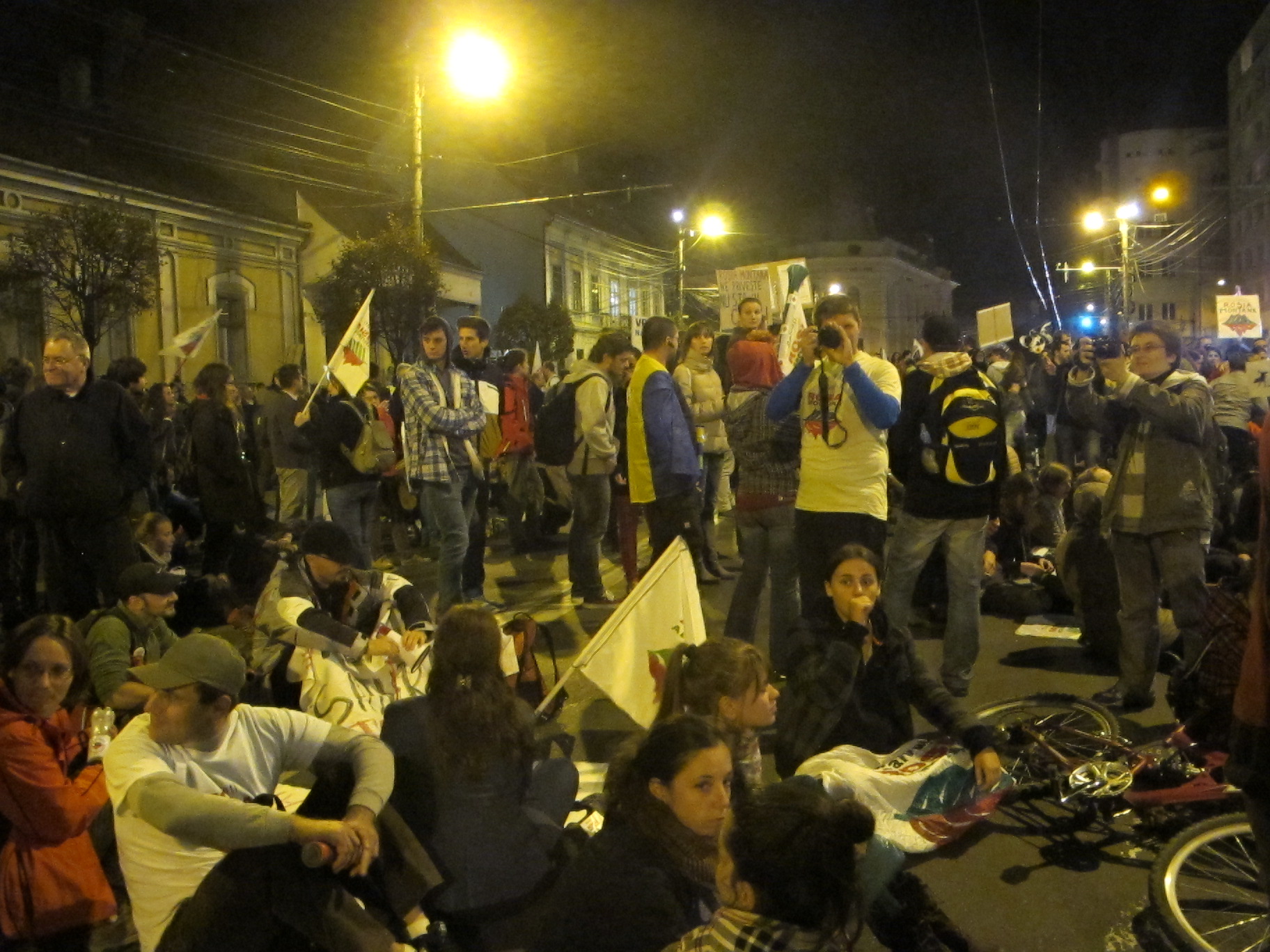About
We try to make the tour as inclusive as possible for any level of fitness or experience with bike touring. We cycle a maximum of 30–70 km per day (depending on the hills), and on average half of the days we stay in a place without cycling. Our experience is that almost everyone can manage this, but there is the possibility to shorten the distances if we discover that it is too much. People cycle in small groups or alone, at whatever speed suits them, and many people like to take it slow and take lots of breaks. A detailed route plan for the day is shared in the morning, arrows are drawn with chalk on the road at every turn, and if you get lost you can always call the Biketour phone. If you have a shitty bike, you will not be the only one, and we enjoy supporting each other if something breaks. We make sure that the last people to leave carry a toolbox, a phone and a first-aid kit in order to assist if anything goes wrong on the road.
Read more about what the Ecotopia Biketour is. If you would like to get an insight into the organisation or just ask a question, contact us.
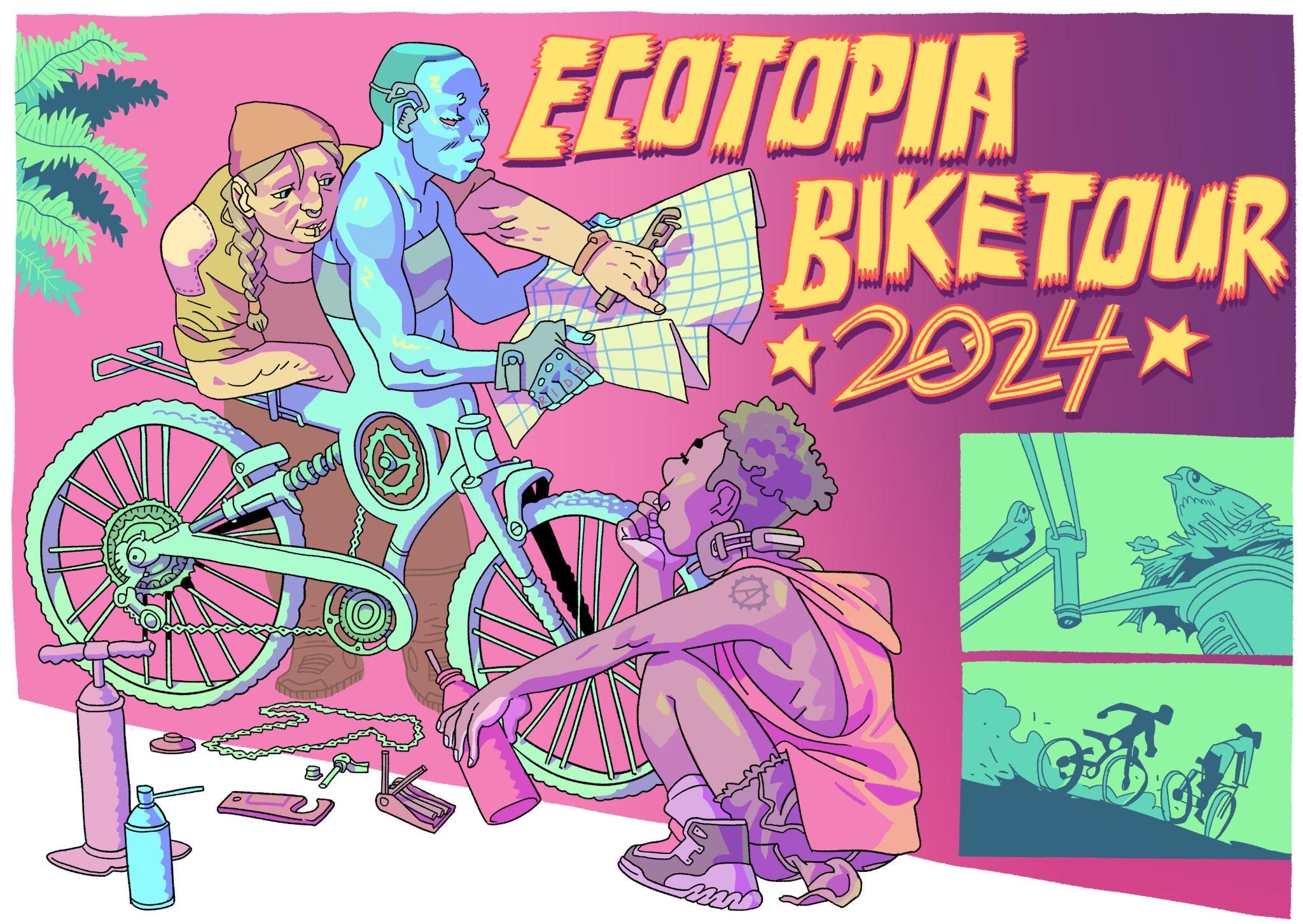
Latest blog posts
Rosia Montana Solidarity Protest outside Romanian Embassy: Berlin
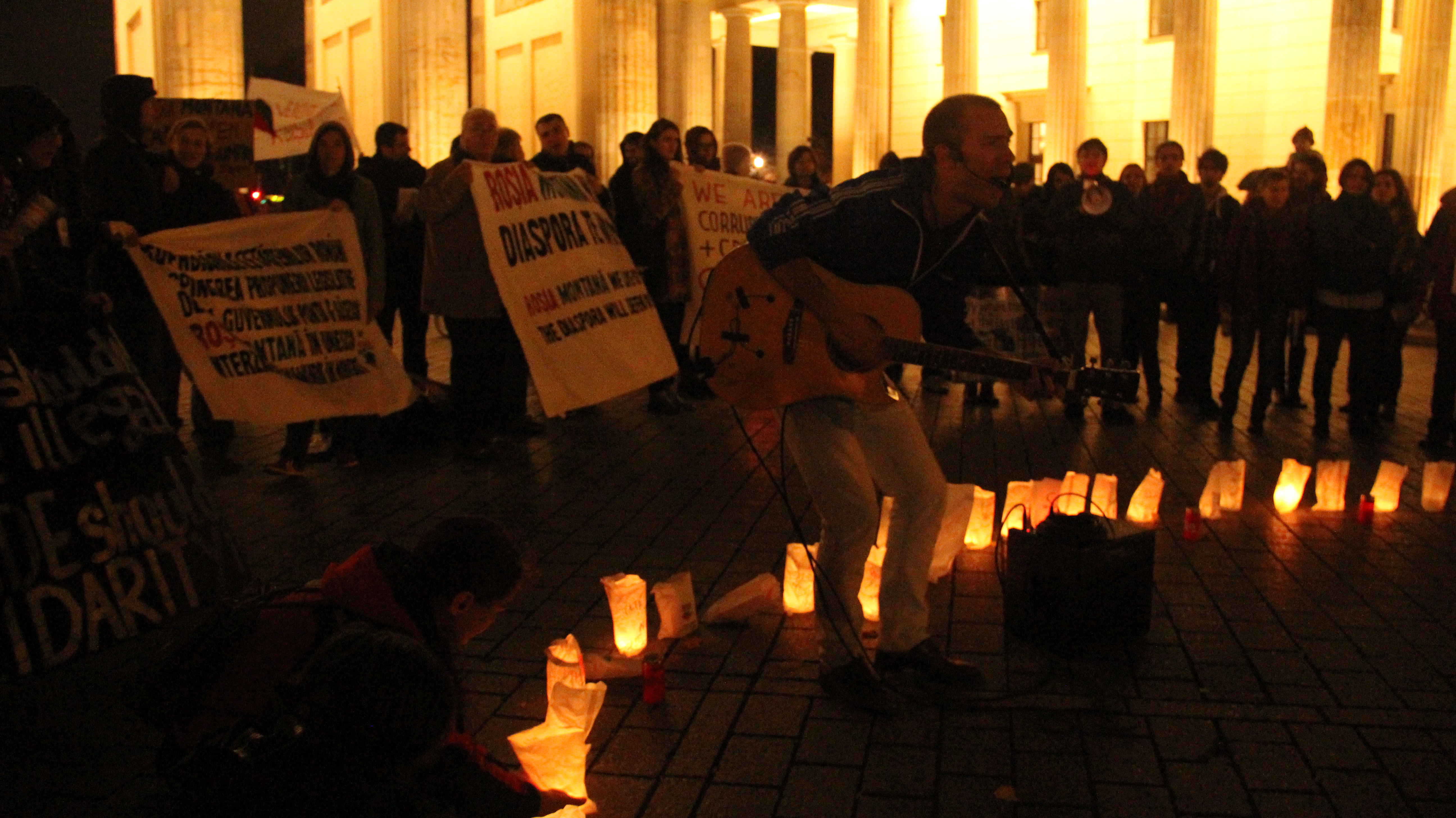
Sorry, this entry is only available in English, Castellano, Deutsch, Français, Italiano and Română. For the sake of viewer convenience, the content is shown below in this site default language. You may click one of the links to switch the site language to another available language. Earlier today protestors met outside the Romanian Embassy in Berlin in Solidarity of the Sunday protest in that have been gaining momentum in Romanian, and beyond since September. There were simultaneous protest all over Romania but also in Barcelona, Paris, and parts of South America. After recently returning to Berlin from the Biketour, I…
A note whilst unpacking…
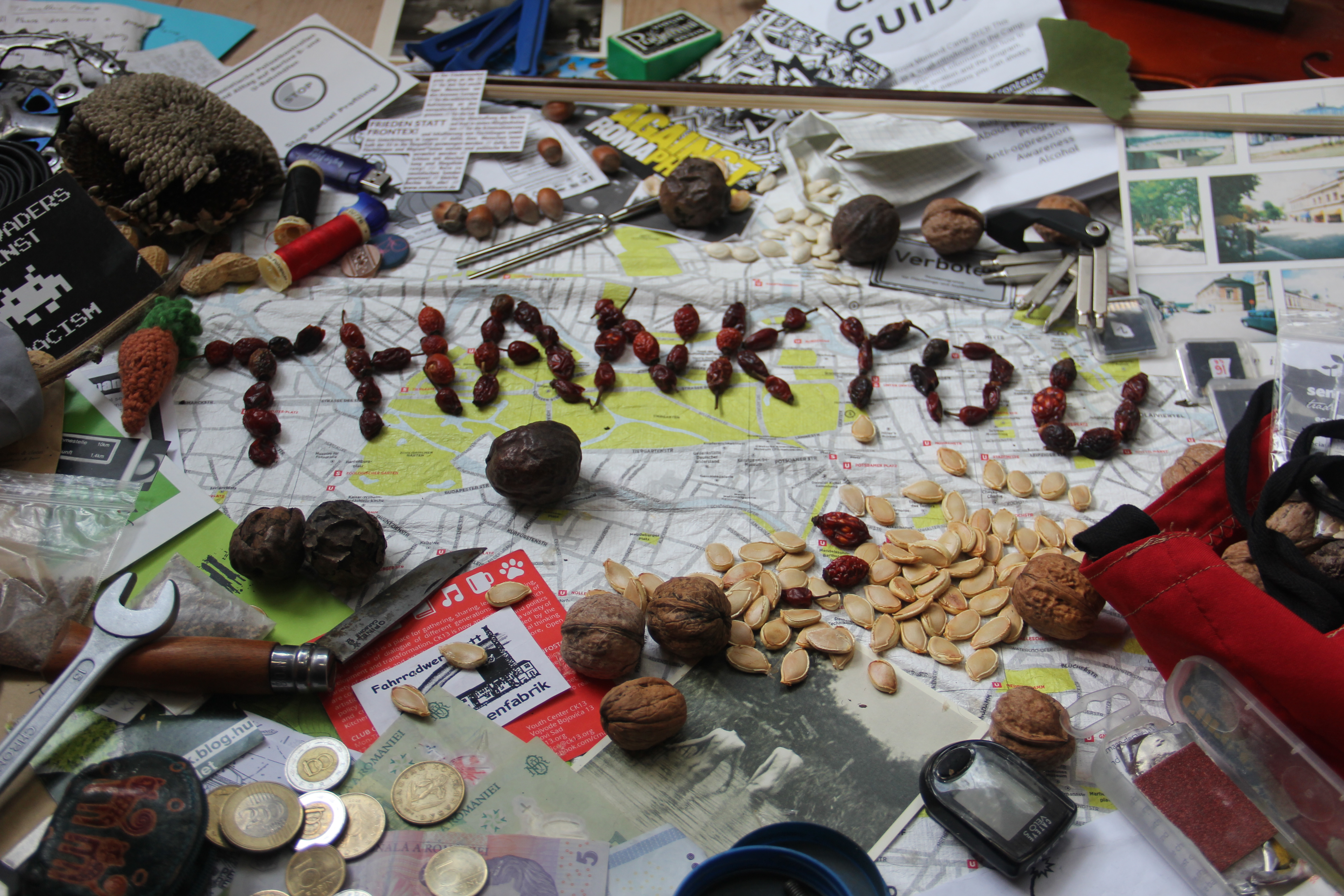
Sorry, this entry is only available in English, Castellano, Deutsch, Français, Italiano and Română. For the sake of viewer convenience, the content is shown below in this site default language. You may click one of the links to switch the site language to another available language. Made whilst unpacking panniers from items foraged or carried along the way…this is just what would fit in the picture! (Click to enlarge). This a thankyou to all the people who cycled alongside us. For the people who cooked delicious creations – for those who built and fixed the rocket stoves (several times) – …
We made it! Final Destination: Cluj, Romania!
International Support: Biketour in Rosia Montana in pictures
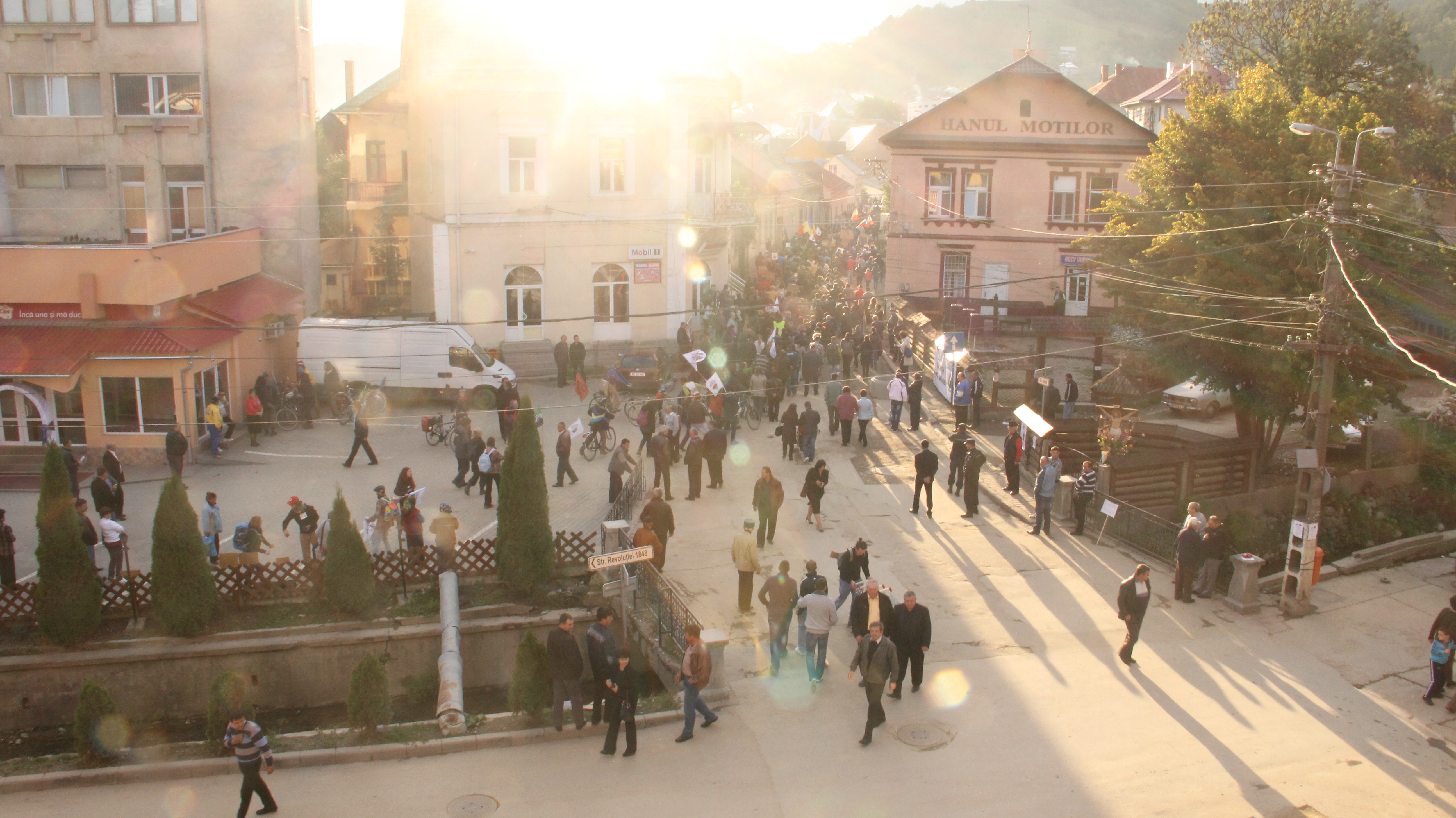
Sorry, this entry is only available in English, Castellano, Deutsch, Français, Italiano and Română. For the sake of viewer convenience, the content is shown below in this site default language. You may click one of the links to switch the site language to another available language. Biketour join local and International protestors at the anti mining protest at Campeni, 15km from Rosia Montana… (22nd September). Arriving into Rosia Montana… An example of the Pro mining banners that litter the town…. one reads ‘Rosia Montana only exisits because of MINING!’… Several anti mining banners were put up overnight in Rosia Montana…






